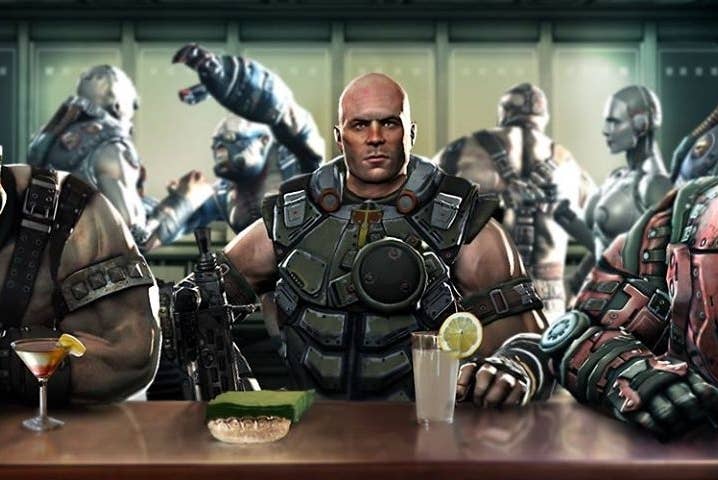Facebook and Unity: 90 million gamers can't be wrong
George Lee on refining Facebook's core game experience to open the door for Unity developers
In the minds of many, gaming on Facebook is still mired in Zynga's peak years - all farming simulators and dubious growth strategies. The notion that core and mid-core games could find a home on the social network is certainly nothing new, but despite a lot of well-meaning rhetoric the old associations remain.
Facebook's George Lee understands this all too well, but he is confident that the company's new alliance with Unity Technologies - an SDK that will allow developers to port their games to Facebook and integrate its social features far more easily - will be the catalyst for long awaited change. According to Lee, Facebook's product manager for platform growth and revenue, the ongoing efforts to improve the in-game experience for core titles could open up a huge new market for both companies.
"Canvas hasn't changed a ton over the years, and, especially for core and mid-core games, we knew that the experience was expected to be at a higher level," Lee told GamesIndustry International at the Unite conference in Vancouver.
"All we did was hook into the interest that was already there, and now we have a ton more users on the platform who have a much better experience"
"Most of them play in full screens - whether on PC or consoles - and our full-screen experience left a lot to be desired. Even basic things like playing in full-screen and inviting a friend to join in - it would pop you out of full-screen, you'd get this request dialogue that was in html and javascript, so you'd send that and have to find your way back into full-screen mode. That's a pretty terrible experience for these core and mid-core gamers that are used to something more immersive.
Indeed, this deeper integration with Unity has interested Facebook for some time, but it was necessary to refine Canvas to adequately support core games first. Lee believes that, this time last year, "the type of games that developers use Unity for" would not have been "fairly represented" by Facebook's technology. However, he is confident that these problems have now been solved, and there is a huge opportunity waiting for Unity developers.
Lee offered Madfinger's Shadowgun: Deadzone as an example. Madfinger designed the game specifically for iOS, but they have gathered an extra 200,000 MAUs in just three weeks through Facebook. Lee wasn't able to provide specifics in terms of revenue, but he did stress the amount of effort required to achieve this growth. "They're seeing a return on what was essentially less than a day's worth of work," he said.
Ultimately, though, the potential here is far greater than any specific example can adequately convey. There has been a sense within Facebook that its community contains a large number of unsatisfied mid-core and core players for some time, but that was difficult to quantify until the start of this year. With just a little extra effort in promoting the Unity web player - necessary for anyone interested in playing Unity games in Facebook - the number of installs tripled from 30 million to 90 million in less than six months. That's a substantial chunk of Facebook's enviable, 260 million-strong gaming community.
"Especially for core and mid-core games, we knew that the experience was expected to be at a higher level"
"That's great growth, and we're proud of that, but we didn't launch this great campaign to make it happen," Lee said. "All we did was add some educational dialogue that said the Unity web player is okay, it's a safe and secure experience, just go through this process and and you're gonna play the game and it's gonna be great. We weren't campaigning or advertising this. All we did was hook into the interest that was already there. All they needed was nudge, and now we have a ton more users on the platform who have a much better experience."
But getting ahead of those old associations will take more time and more effort. Lee is confident that the size of Facebook's community will prove extremely attractive to Unity developers, but whether core games will come to dominate the platform will ultimately be decided by its users.
"We're not necessarily in the business of choosing who's going to win - our users do that," he said. "Candy Crush is doing extremely well right now. The Farmvilles of this world had their time where they did really well. But with 260 million active gamers on a monthly basis, there is some percentage of those people who want to play [Unity] games. If we can provide the right experience that's consistent with their expectations, I can't imagine that it won't get some of them to play."

